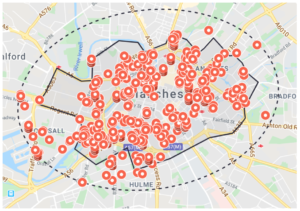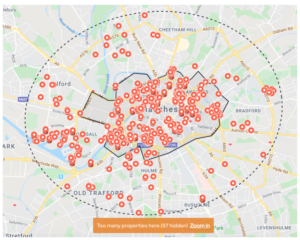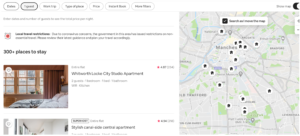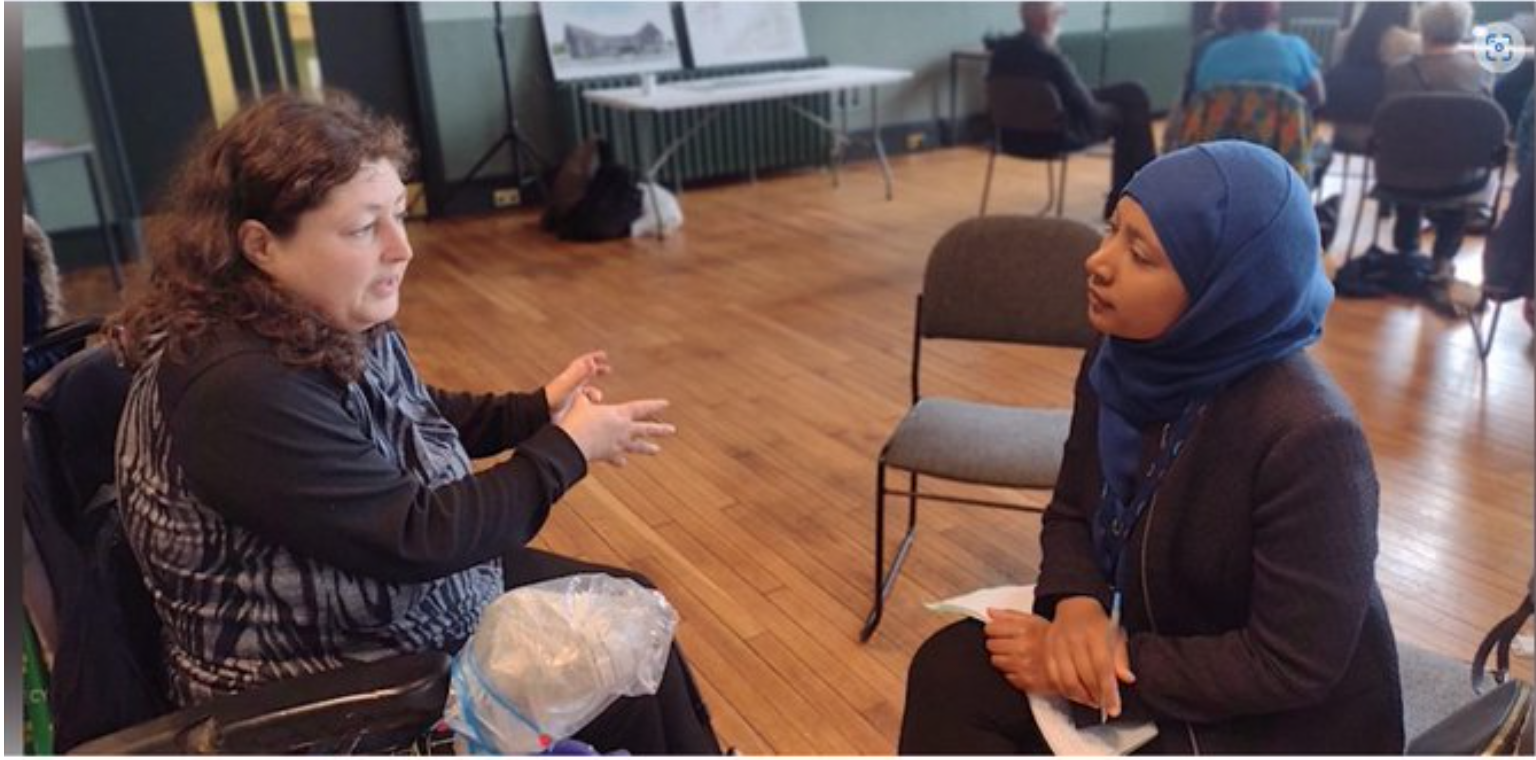By Joe Chambers (@Joe_Chambers90),
Researcher based at the University of Manchester
AirBnB, satisfying the demand for both short-term and vacation rentals outside of the traditional hotel economy, has seen a continued proliferation across Greater Manchester. The city centre and areas such as the Northern Quarter have been most impacted by this, with many landlords favouring the removal of long term tenants to instead extract profit instead from a high turnover of guests. Although serving a market need, there is already a wealth of evidence and research pointing towards the damaging impacts of AirBnB on communities, local economies and housing markets. Many AirBnB landlords operate outside of the checking processes commonly found within traditional housing rental markets. Furthermore, a lack of clear information and data on the number of AirBnb properties, their ownership and maintenance procedures, creates a hidden and extractive economy in cities such as Manchester.
Despite promises from Cllr Pat Karney in January 2019 to take control over Manchester City Council’s response to the growing AirBnB market in Manchester, there was little in the way of any direct action, although efforts to stop first time buyers renting out have begun. Now however, with Covid-19 and its resulting social restrictions, an insight into the AirBnB market in Manchester has emerged. Over the past 2 weeks, there has been a flurry of activity on property websites such as Rightmove, Zoopla and On The Market and notably, a significant rise in the number of properties coming up for rent within Manchester’s city centre.
Just taking one of these platforms, Rightmove, and setting a search function to identify furnished/part-furnished rental properties (City centre + ¼ mile) that have become available in the last 2 weeks (not including; student properties, house share or retirement properties), it returned 471 properties (30.3.20). Although some of the properties advertised may come from the traditional rental market, when the images and descriptions of the properties are scanned through the common trappings of an AirBnB property are apparent; artistically placed furniture, immaculately laid out dinner plates, bathrooms with towels and a kitchen complete with utensils.
When we expand the search area to 1 mile (keeping the same search function as before), it returns 597 properties available for rent in the last 2 weeks. Furthermore, hotspot areas such as Salford Quays and Cornbrook now become visible, two locations with good transport links to the city centre and most-likely, very appealing to visitors. Due to the mass of properties available, the returning map was unable to visualise the full extent of the rental options.
The methodology used here to search for the number of AirBnB properties is clearly open to interpretation and adjustment, but rather than attempting to identify an exact figure, it should be used as a point of discussion about the future Manchester wants to take in regard to its support of AirBnB properties. Furthermore, it is important to note that these results are only the properties now available to rent and not those for sale. This is an important distinction, as other AirBnB landlords may be choosing to put their properties up for sale or may be willing to leave them empty in the meantime, if they even are. On a normal search of AirBnb properties available at present (1 guest), there are still 300+ properties available within ‘Manchester Central’ alone.
The present turbulence within the housing market caused by Covid-19 offers opportunities to peek into the economic dynamics driving the AirBnB market within Manchester and should be used to help formulate questions about what future we want for Manchester. Organisations such as Tenants Union have already begun a FairBnB campaign, drawing attention to the chaos and economic challenges that a growing, unregulated AirBnB market is causing in cities like Manchester. With many people struggling to find affordable rental accomodation in Manchester, let alone get onto the property ladder, the continued encouragement for landlords within the UK and overseas to invest in the AirBnB market further dampens any hope of a sustainable and fair housing future for the city. If Manchester City Council is serious about wanting to crack down on the AirBnB market as well as help support communities impacted by the rise of these properties, then actions must be taken immediately to address this imbalance. Now is not the time for platitudes and promises. With a looming economic recession on the horizon, this is the time to make landlords accountable, to protect tenants and to take steps towards creating a more just housing market in Manchester.
1 April 2020








